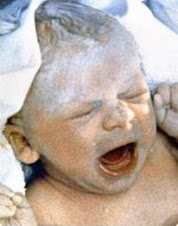 |
| scientist working during ivf process |
British lawmakers in the House of Commons voted today to allow scientists to create babies from the DNA of three people—a move that could prevent some children from inheriting potentially fatal diseases from their mothers. The vote in the House of Commons was 382-128 in favor. The bill must next be approved by the House of Lords before becoming law. If so, it would make Britain the first country in the world to allow embryos to be genetically modified. The controversial techniques involve altering a human egg or embryo before transferring it into the mother. British law currently forbids any such modification and critics say approving the techniques could lead to the creation of "designer babies."
Defects in the mitochondria can result
in diseases including muscular dystrophy; heart, kidney, and liver failure; and
severe muscle weakness. The techniques would likely only be used in about a
dozen British women every year who have faulty mitochondria, the
energy-producing structures outside a cell's nucleus. To fix that, scientists
remove the nucleus DNA from the egg of a prospective mother and insert it into
a donor egg from which the nucleus DNA has been removed. This can be done
either before or after fertilization. The resulting embryo would end up with the
nucleus DNA from its parents but the mitochondrial DNA from the donor.
Scientists say the DNA from the donor egg amounts to less than 1% of the
resulting embryo's genes. Last year, the US FDA held a meeting to discuss the
techniques and scientists warned it could take decades to determine if they are
safe.
source: newser.com






